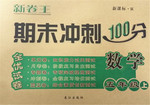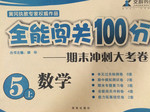题目内容
【题目】—What’s up? What’s that terrible noise from our upstairs neighbor?
—The spoiled boy is yelling and screaming to ______, I guess.
A. mend his way B. stop his way
C. push his way D. get his way
【答案】D
【解析】试题分析:考查短语辨析。A.改正错误;改变习惯 B.停止前进 C.推开人群以通过;推开前行 D.为所欲为;随心所欲。句意:—怎么啦?楼上邻居发出什么可怕噪音?—我想是那个被宠坏了的男孩吵着闹着要得到他想要的。故选D.

练习册系列答案
 课程达标测试卷闯关100分系列答案
课程达标测试卷闯关100分系列答案 新卷王期末冲刺100分系列答案
新卷王期末冲刺100分系列答案 全能闯关100分系列答案
全能闯关100分系列答案
相关题目